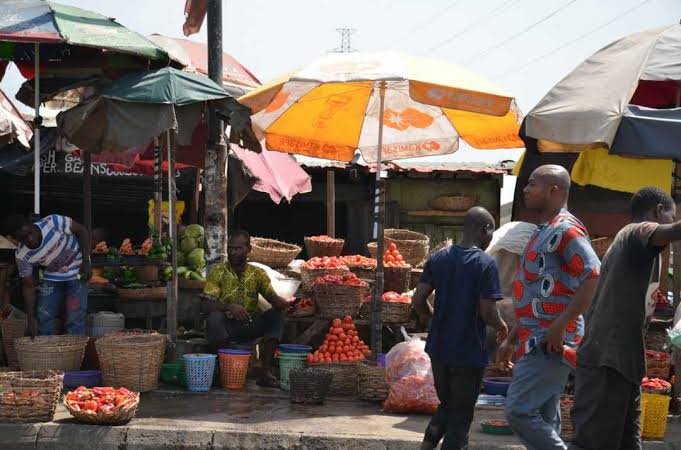By Oghale Mafuru
As Nigerians prepares for the polls to determine the next democratically elected governments, the tension and uncertainty in the polity amid cash scarcity have driven consumers to revert to supermarkets rather than the Open market as a way to avoid cash transactions which is the prevalent payment mode in the open markets.
MARKETING EDGE market insights and intelligence report revealed that since Friday evening after the crisis that broke out in major parts of Lagos, supermarkets have been filled to capacity as consumers appeared to be shopping and stocking up on necessities as they prepare for any eventuality that may arise.
Consumers were seen shopping at the supermarkets till Sunday evening, a phenomenon not uncommon during political uncertainty. However their preference to shop at the supermarkets is due the fact that they can make payments via internet transfers and ATM.
According to them the political landscape is tense and it will be wise to prepare adequately with necessary supplies despite the prevailing economic crisis.
The reporter observed long queues at payment points as consumer scrabble to make quick purchases and exit the already crowded stores.
Some of the shopppers who spoke on conditions of anonymity to MARKETING EDGE revealed that the cash scarcity has drastically changed their consumption behaviour and that shopping at the supermarket is occassioned by the inability to purchase items from local vendors due to lqck of access to cash to facilitate the transactions.
“There is no cash anywhere. You can barely buy much outside. Only few people agree to receive transfers. Beside, would network and ‘bank wahala’ (banking operational problems) allow you?”
Meanwhile, there isn’t much of commercial activities in the public markets. It was observed that most sellers sat idle with their wares on display.
It was observed the usual crowds that walked the length and breath of the market on Saturdays, when most families purchase foodstuffs for the week, was devoid of the beehive of activities that accompanies such days.
It will be recalled that crisis broke out in parts of Lagos on Friday morning following protest against the cashless policy of the Federal Government which led to cash scarcity.
The protesters stormed Mile-12, Ketu, Ojota areas, along Ikorodu Road; and Iyana-Ipaja early this morning. The civil unrest extended to places like Agege, Ikorodu and other parts of the state.
This happened days after similar protest occured in Edo and Delta States with Automated Teller Machines destroyed and some banks set on fire.
This development was caused by the outright rejection of the old naira notes by vendors, retail outlets and transport workers which further aggregated the sufferings of Nigerians who had no access to the new naira notes.
Despite Supreme Court order to halt the implementation of the phase out of the old naira notes, the Governor of the Central Bank of Nigeria remained adamant.
President Muhammadu Buhari in a nationwide broadcast last week announced that only the N200 old notes will remain legal tender alongside the new naira notes and directed the CBN to make them available for Nigerians.
In his speech, the praised the new monetary policy as it has help to mop up cash held by individuals which according to him, slowed down economic activities and growth.
“Notwithstanding the initial setbacks experienced, the evaluation and feedback mechanism set up has revealed that gains have emerged from the policy initiative.
“I have been reliably informed that since the commencement of this program, about N2.1 trillion out of the banknotes previously held outside the banking system, had been successfully retrieved.
This represents about 80% of such funds”.






Comment
No comments found.